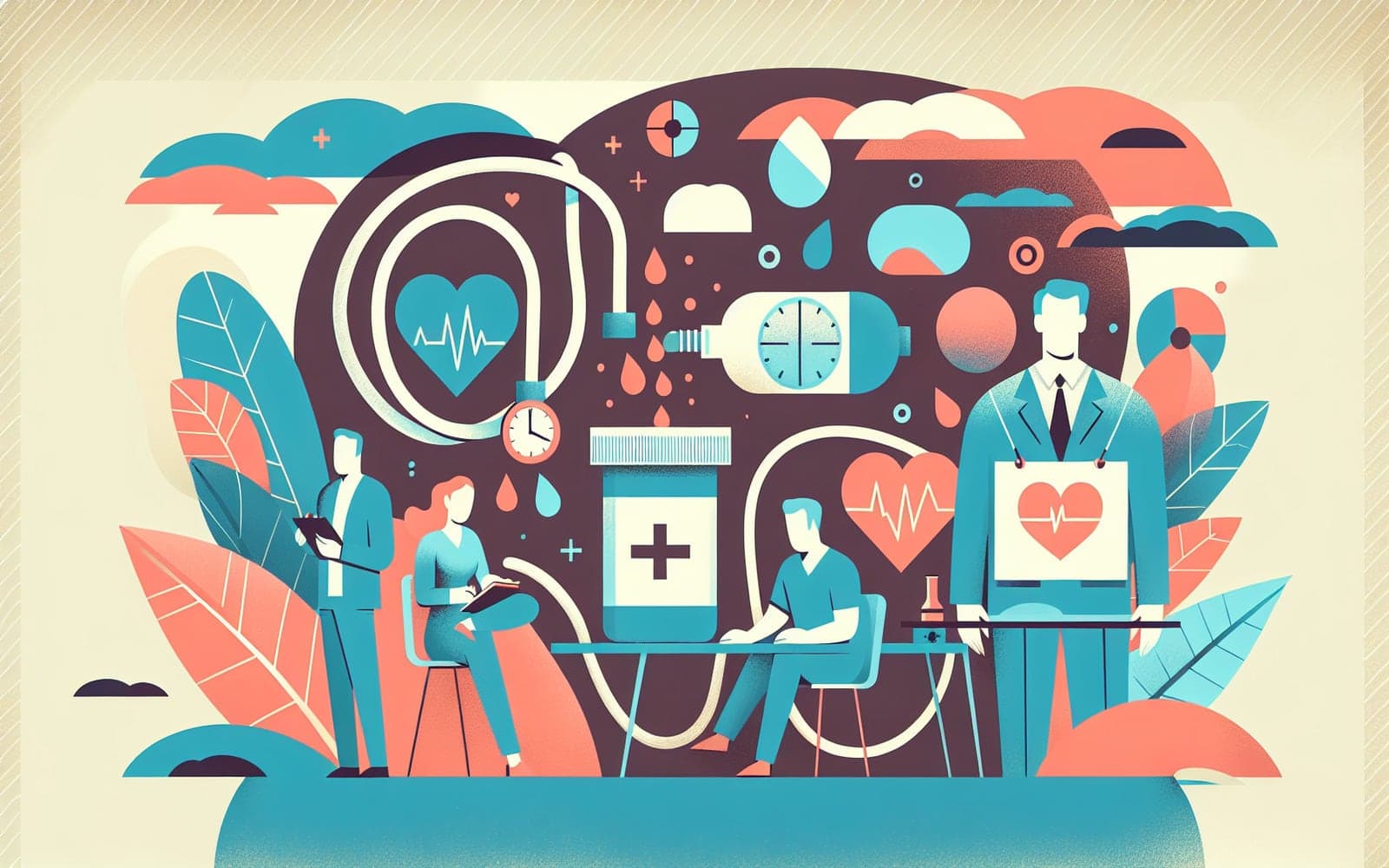Is Poor Medication Adherence Sabotaging Your Blood Pressure Control?
Published: May 19, 2024
Uncontrolled hypertension is a major health concern, and poor medication adherence might be the sneaky saboteur. Understanding why patients struggle to take their meds could be the key to better blood pressure management.
Contents
The Scope of the Problem
Nonadherence to antihypertensive medication is alarmingly common. Studies show that 20-40% of patients don't take their blood pressure meds as prescribed. This issue varies with age, gender, and medication type, but it's a widespread challenge across different demographics.
Why Patients Struggle with Adherence
Several factors contribute to poor medication adherence. These include the silent nature of hypertension (no obvious symptoms), complex medication regimens, side effects, and the cost of prescriptions. Additionally, lack of understanding about the long-term risks of uncontrolled blood pressure can lead to complacency.

Strategies for Improvement
Improving adherence requires a multi-faceted approach. This can include patient education, simplifying medication regimens with once-daily dosing or combination pills, using technology like pill reminders, and encouraging home blood pressure monitoring. Regular follow-ups and open communication between patients and healthcare providers are also crucial.
Frequently Asked Questions
Studies show 20-40% of hypertension patients don't take meds as prescribed.
Hypertension's lack of obvious symptoms can lead to complacency.
Yes, pill reminders and blood pressure tracking apps can be effective tools.
Yes, single-pill combinations often lead to better medication adherence.
Key Takeaways
Addressing medication adherence is crucial for achieving better blood pressure control and reducing cardiovascular risks.
Ready to take control of your blood pressure? Chat with Doctronic about personalized strategies to improve your medication adherence.Related Articles
- Cracking the Code: Simple Strategies to Boost Blood Pressure Medication Adherence
- Unmasking the Truth: How Doctors Detect Blood Pressure Medication Nonadherence
- The Silent Threat: Why Skipping Blood Pressure Meds is More Dangerous Than You Think
- Tech to the Rescue: How Smart Devices Are Revolutionizing Blood Pressure Medication Adherence
References
Choudhry NK, Kronish IM, Vongpatanasin W, et al. Medication Adherence and Blood Pressure Control: A Scientific Statement From the American Heart Association. Hypertension 2022; 79:e1.
Gupta P, Patel P, Štrauch B, et al. Risk Factors for Nonadherence to Antihypertensive Treatment. Hypertension 2017; 69:1113.
Always discuss health information with your healthcare provider.

